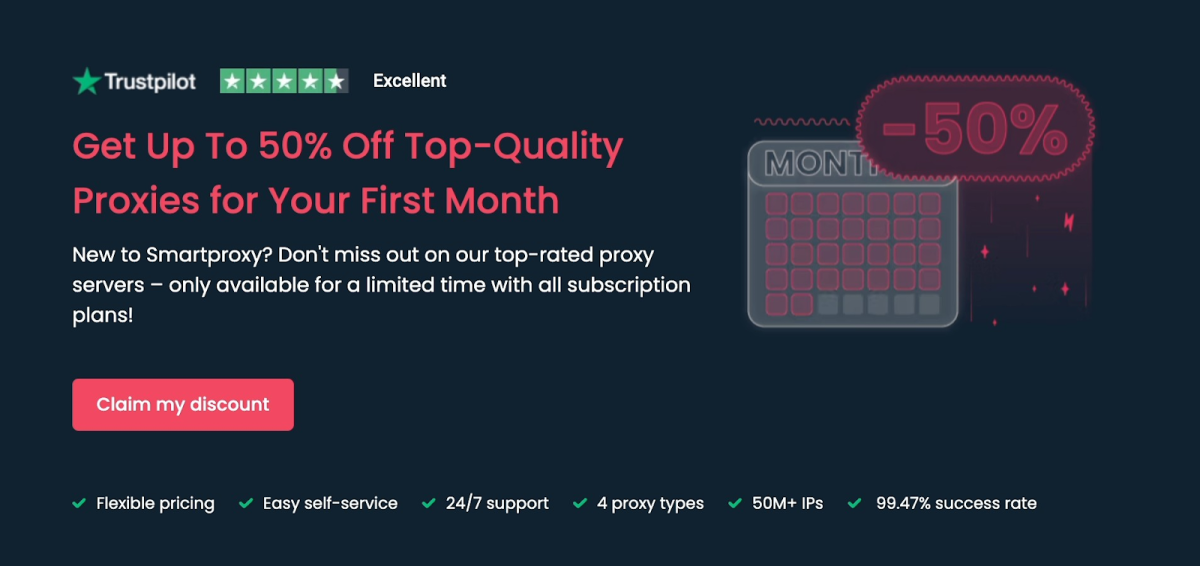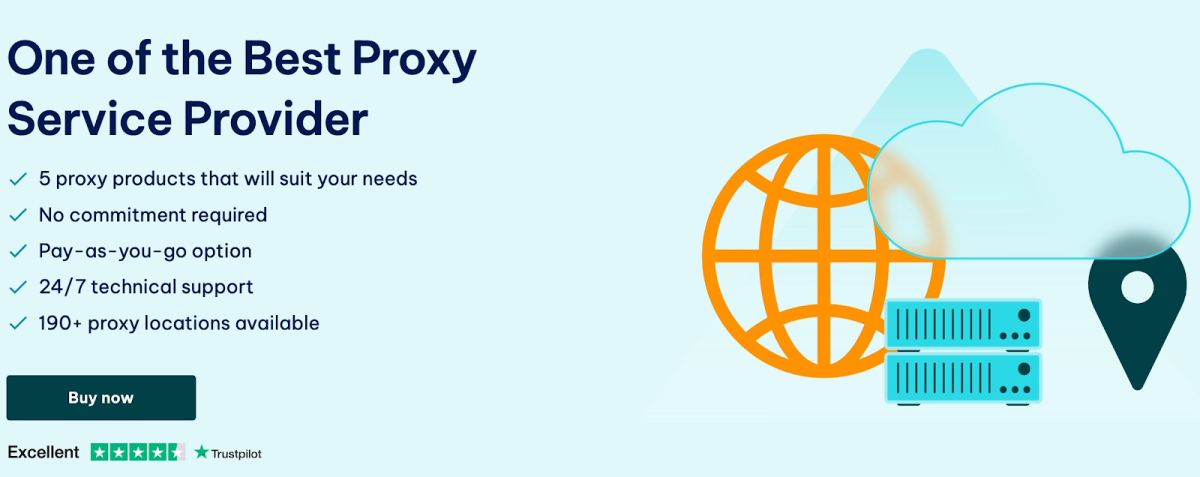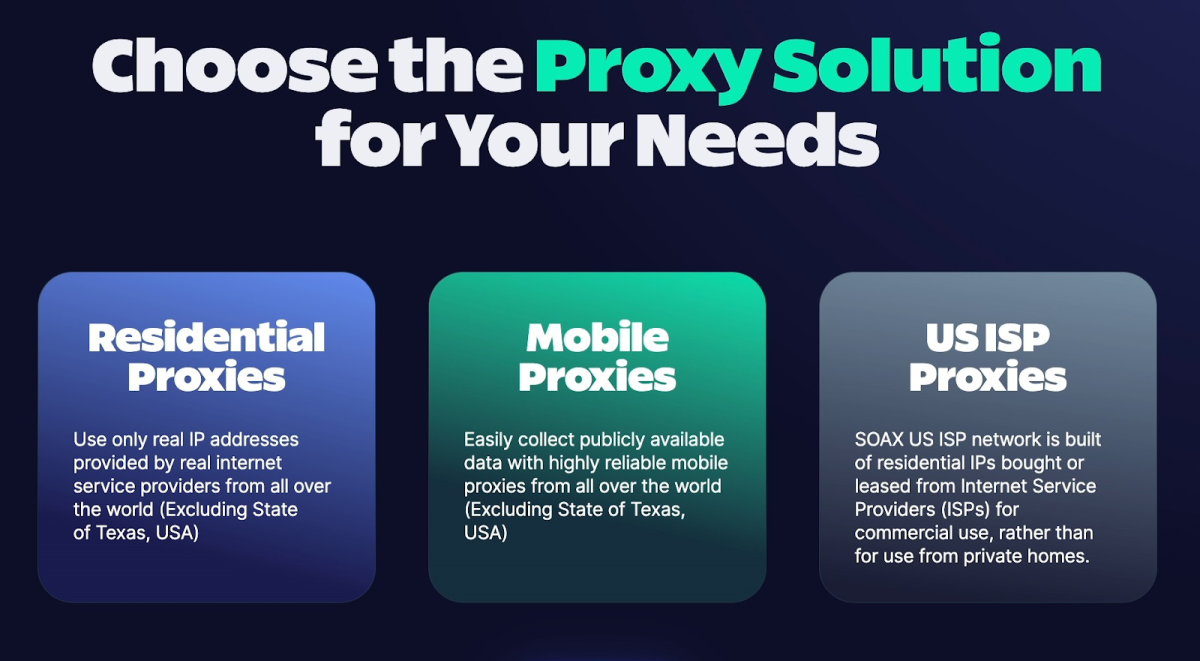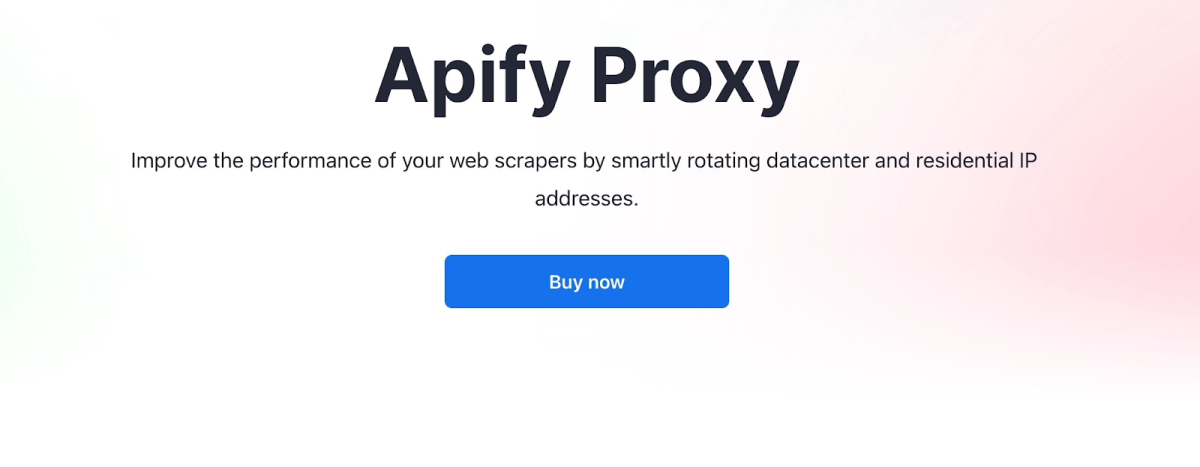[ad_1]
Proxy servers act as intermediaries, shielding users’ online identities, ensuring secure connections, and facilitating access to geo-restricted content. Despite their importance in maintaining secure and reliable connections, it is difficult for users to choose a proxy service that fulfills their requirements and fits within their allocated budget because. There are different factors that create a diverse range of pricing models in the proxy server market:
- There are 40+ players in the market
- Pricing is based on multiple parameters
- Prices change drastically between different types of proxies (e.g. providing different levels of anonymity) and different providers
- Proxy effectiveness (e.g. ability to access geo-restricted web content) varies between providers.
This article explores the components influencing proxy server pricing and compares the prices of various proxy service providers to save you time and effort. By comparing different proxy service providers, we aim to help you make informed decisions when choosing a proxy server solution.
Understanding the factors that determine proxy pricing
There are several factors that can affect the cost of a proxy server. These could include:
Proxy quality:
- Proxy type: There are different types of proxies, including residential, datacenter, and mobile proxies. For example, residential proxies use IP addresses that are associated with ISPs (Internet Service Providers), making them appear more legitimate and harder to block. Since they provide higher anonymity and privacy, they are generally more expensive than datacenter proxies.
On the other hand, datacenter proxies use IP addresses from a data center, making them faster but easier to block. If your task requires high performance or security, like web scraping in large volumes, rotating residential proxies reduce the risk of data exposure.
This proxy pricing component is represented in the proxy pricing comparison table as residential, datacenter, and mobile proxies.
- Proxy/IP pool size: The number of IP addresses you want to purchase plays a significant role in determining the cost. A higher quantity of IP addresses generally means a higher cost. Some proxy service providers use a bulk discount approach, meaning that the cost per proxy decreases as the quantity of proxies purchased increases.
This proxy pricing component is represented per GB in the table.
- Number of users: The price of a proxy can depend on the number of users who access a proxy server or IP address. By the number of users who share an IP address, proxies can be divided into two categories: shared and dedicated (private) proxies. In general, shared proxies are more cost-effective than dedicated proxies because the cost of a shared proxy is split among multiple users (Figure 1). On the other hand, dedicated proxy servers are more costly due to their enhanced performance and privacy.
This proxy pricing component is represented as shared and dedicated (private) proxy types in the table.
Figure 1: An overview of how a shared proxy server works

Traffic:
- Data usage: Some proxy service providers may charge based on the number of requests you make, amount of data you use or bandwidth you consume. For instance, if you intend to collect data at a large scale, you may need to send a higher number of requests to the target web server. You might need to opt for a higher-tier plan, which could result in higher costs. When choosing a proxy provider, it is crucial to understand the pricing structure of the proxy provider and consider your data usage.
Each proxy provider in the table raises their prices as the amount of GB used increases.
- Port usage: Proxy servers forward clients’ connection requests to the target web server using a port. Some proxy providers may limit the number of ports you can use and charge for additional ports.
Port usage is not included in the proxy price comparison table; visit the providers’ websites to see how port usage affects proxy cost.
Additional features:
- Geographic coverage: Proxies located in certain countries may cost more than others due to higher demand. Some proxy providers offer advanced geo-targeting features such as city, ASN, and zip code level targeting, which in turn, can charge more.
- Automatic proxy rotation: Some proxy service providers allow users to automatically rotate IP addresses in a predetermined period of time or after each request. It increases the level of anonymity and reduces the chance of a user’s activities being detected and blocked by the target website. However, this may increase the overall cost of the proxy service.
Figure 2: A diagram illustrating how a rotating proxy server operates

- Management services: Managements services refer to the additional tools and services that enable users manage and optimize their use of proxy servers, such as API integration, proxy manager, or dashboard tools. Some proxy providers offer API and control panels that enable users to easily manage their proxies, adjust settings, and view proxy usage statistics.
This might increase the pricing of a proxy server due to the additional flexibility they provide. Before choosing a proxy service provider, it is important to consider additional features that your specific application requires and balance these features against your budget.
Geographic coverage, automatic proxy rotation and management services are not included in the proxy price comparison table; visit the providers’ websites to see how port usage affects proxy cost.
Proxy pricing for different proxy service providers
The specific pricing models can vary between different proxy server providers. We compiled all relevant and publicly available information on proxy pricing based on a monthly commitment.
Since the availability of free trials is an important factor in choosing a proxy service, we also included free trials of the products in the comparison table. A free trial is a minimum commitment model that allows potential customers to evaluate the features of the proxy service provider. It helps users understand the pricing structure of the service before making any financial commitment.
Proxy service providers often use pay-per-IP and pay-per-GB pricing models. The following table compares proxy services based on a pay-per-GB pricing model. In the pay-per-GB model, you are charged based on the quantity of data you use.
There are numerous proxy providers available; we chose the vendors based on their employee count and reviews on review platforms.
We filtered vendors based on these verifiable criteria:
- 40+ employees on LinkedIn
- 10+ reviews on review sites such as G2, Trustradius, and Capterra.
We filtered based on the number of employees and B2B peer evaluations because they are correlated with a company’s market success.
Table: The table displays the proxy service providers that cost below $100 for per GB/mo
| Vendors | Trial Period | Pay-as-you-go plan* | Residential Proxy Price per GB/mo | Datacenter Proxy Price per GB/mo | Mobile Proxy Price per GB/mo |
|---|---|---|---|---|---|
| Oxylabs | 7-day | Only for residential proxies | $15 | Shared: $0.65 Dedicated: $1.80 |
$25 |
| Smartproxy | Custom trials | Only for residential proxies | $12 | Shared: $0.7 Dedicated: $2.5 |
$25 |
| IPRoyal | 1-day for mobile proxies | Only for residential proxies | $7 | $1.39 | $90 |
| SOAX | 3-day trial for $1.99 | ❌ | $12 | ❌ | $33 |
| Apify | $5 free usage | ✅ | $13 | Shared: $1 Dedicated: $7 |
❌ |
| NetNut | 7-day | ❌ | Rotating: $15 Static: $17.5 |
$1 | $19 |
* Offers only subscription services
1. Oxylabs
Oxylabs provides two proxy pricing plans for residential and datacenter proxies, regular and enterprise, based on the data consumption requirements of users. You’re charged based on the total amount of data transferred through the proxy.

Oxylabs’ proxy pricing depends on the:
- Amount of data you use
- Management services they offer, such as dedicated account manager
- IPs included in plan
- Number of users who share an IP address, like dedicated datacenter proxies and shared datacenter proxies.
2. Smartproxy
Smartproxy provides a 3-day money-back guarantee on residential, mobile, datacenter, and dedicated datacenter proxies. They offer pay-per-IP and pay-per-GB pricing models for shared datacenter proxies, but only pay-per-IP pricing for dedicated proxies.

Smartproxy’s proxy pricing depends on the:
- Amount of data used
- Amount of IP addresses used
- Numerical ordering of the IP addresses. Smartproxy offers sequential and non-sequential IP addresses for dedicated proxy servers. Sequential IP addresses adhere to a numerical order, whereas non-sequential IP addresses do not consecutively follow each other.
- Number of unique usernames/passwords or whitelisted IPs. Username-password, and IP whitelisting and blacklisting are two types of IP authorization methods that allow users to authenticate users. Some proxy providers may charge based on the number of whitelisted IPs or usernames and passwords.
3. IPRoyal
IPRoyal provides 8+ proxy IPs, including datacenter, mobile, sneaker proxies, rotating and static residential proxies.

IPRoyal’s proxy pricing depends on the:
- Number of people who share an IP address
- Type of IP version. Proxies can use either IPv4 or IPv6 addresses. Each version governs data transmission and reception over the internet differently. IPRoyal offers datacenter IP addresses in IPv4 and IPv6, with prices starting at 1.3USD per IPv4 proxy and 0.2USD per IPv6 proxy.
- Proxy rotation
- Number of end-users
4. SOAX
SOAX offers an 8.5M+ proxy IP pool, including residential, ISP, and mobile network. They provide users with crypto (bitcoin) payment method for proxies.

SOAX’s proxy pricing depends on the:
- Number of whitelisted IPs
- Amount of data a client requires
- Number of ports. When you use a proxy, the proxy server forwards your connection request to the target website through the same or a different port.
- Customer support and proxy management services they provide.
5. NetNut
NetNut provides proxy networks for web data collection, including residential (rotating and static), datacenter and mobile proxies.

NetNut’s proxy pricing depends on the:
- Proxy management services the proxy providers provide such as API access and dedicated account manager
- Number of IP whitelist
- Number of data you require
- Customer support the proxy service offers such as live support
6. Apify
Apify provides residential, datacenter, and Google SERPs (Search Engine Results Page) proxies. They provide $5 in free proxy usage, which is restricted to use within the platform and does not apply to external clients.

Apify’s proxy pricing depends on the:
- The number of IPs included
- Number of simultaneous connections
- Support level, such as priority chat, account manager, custom service level agreement (SLA)
For more on proxy servers
Feel free to download our whitepaper for a more in-depth understanding of proxy service providers:
Proxy Service Selection Guide
For guidance to choose the right tool, check out our sortable/filterable list of proxy service/server. and reach out to us:
Find the Right Vendors
Source link


